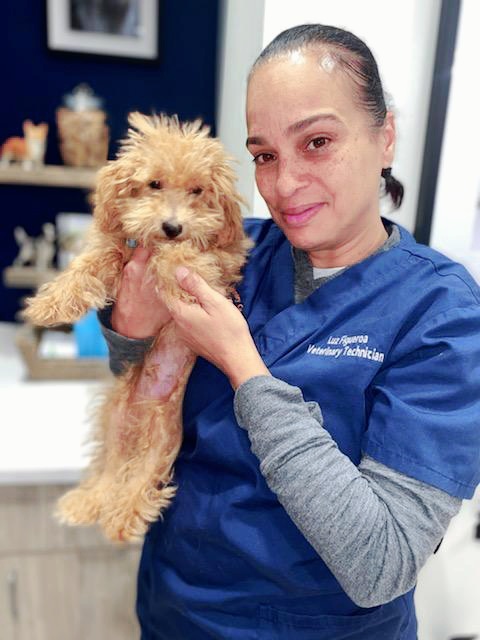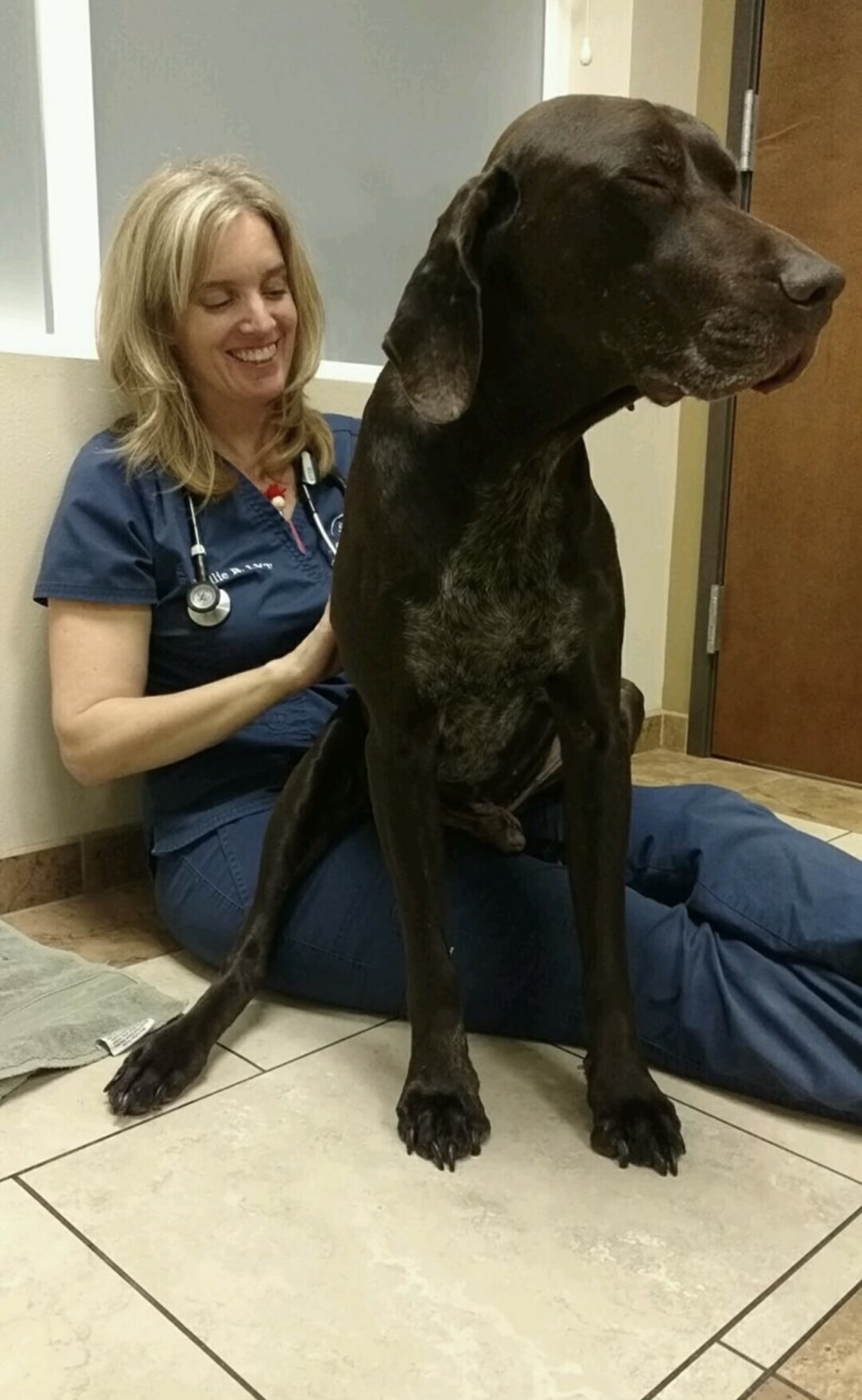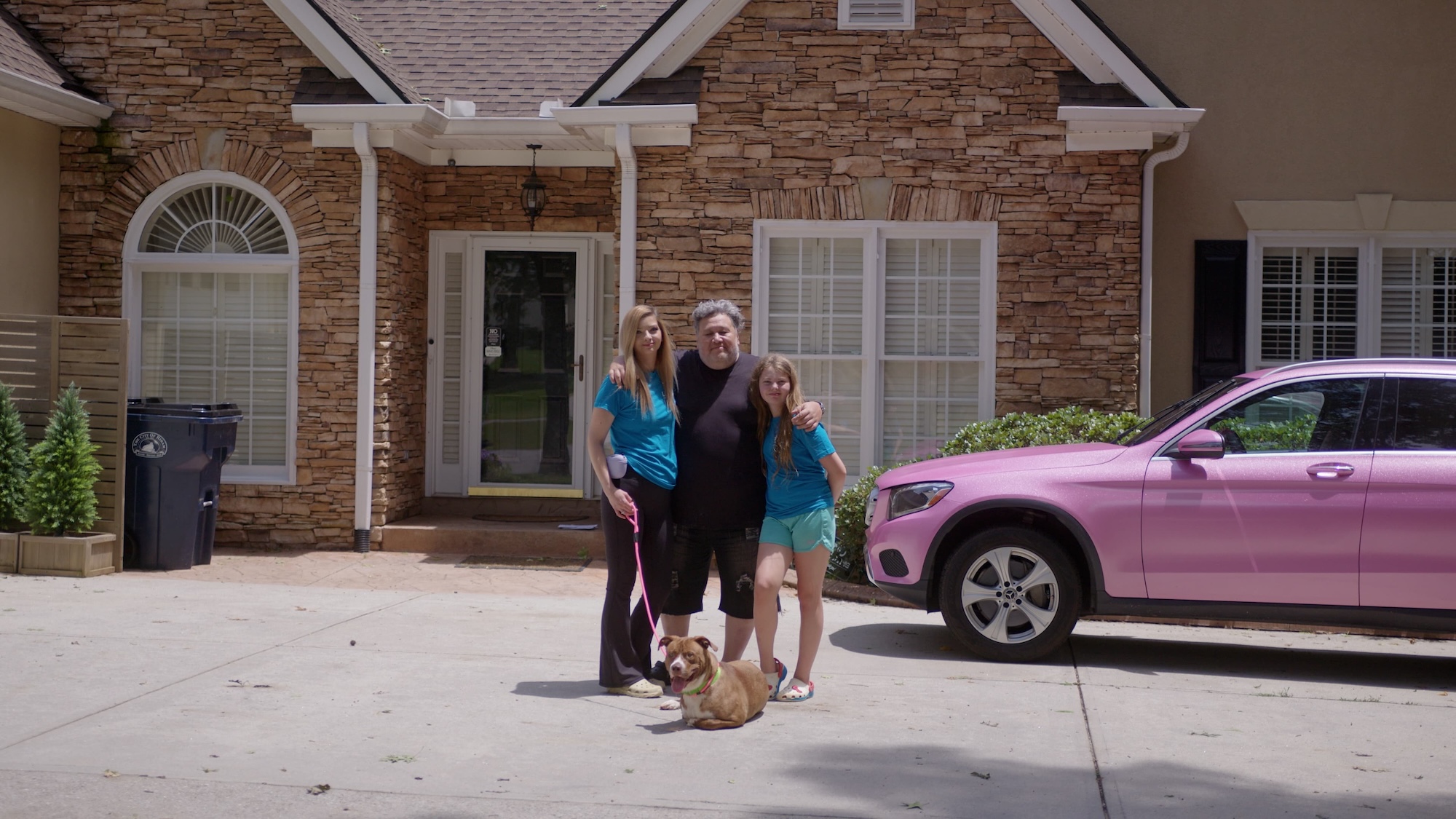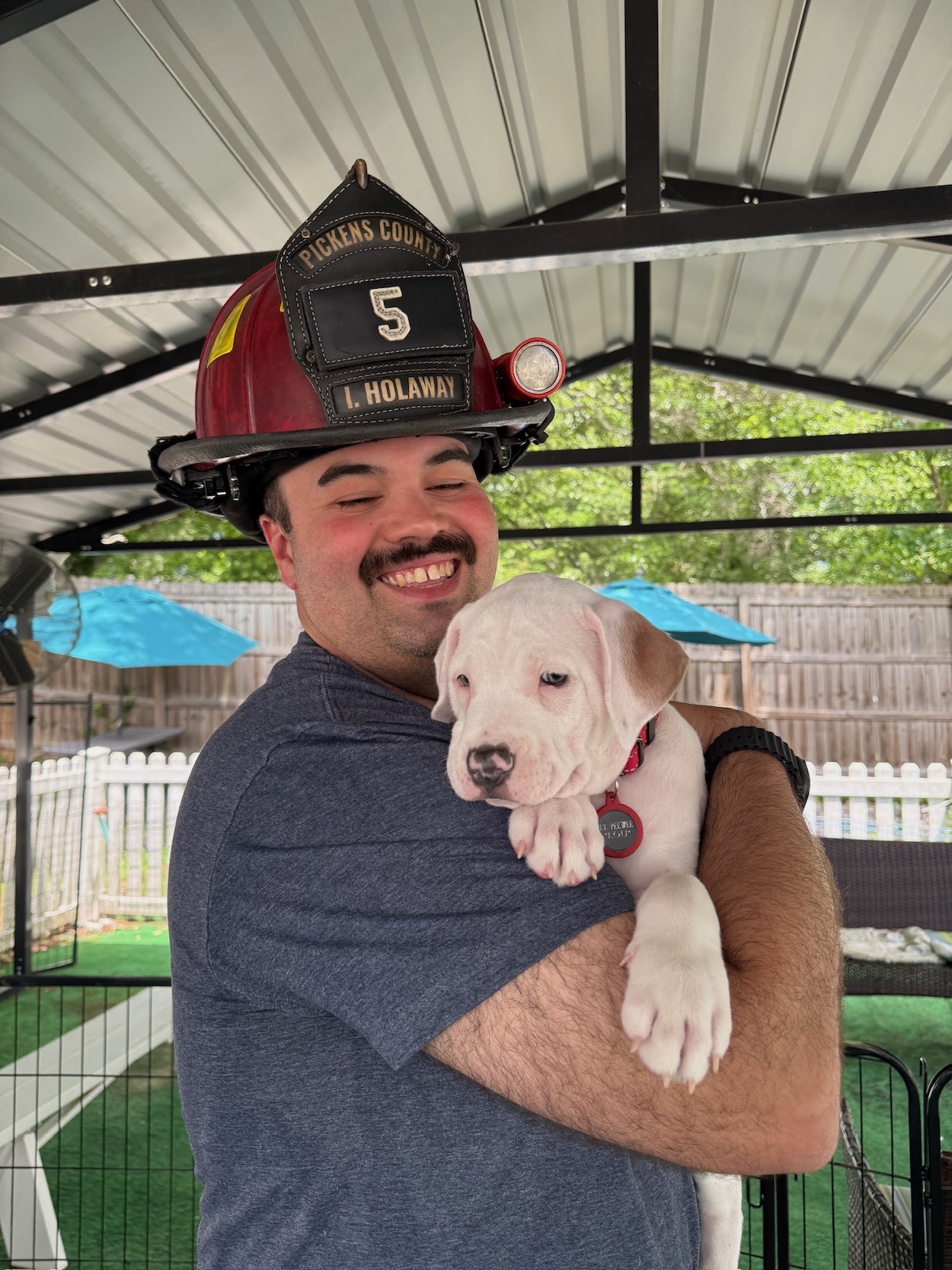Veterinary technicians need certain skills to graduate from school and join the workforce. “Technical” is in the name of the job, after all. But beyond the profession’s more concrete requirements, great vet techs show compassion and empathy for the animals in their care and the people who love them.
**
Cami Rubach, Social Media Manager here at The Farmer’s Dog, saw the difference this emotional connection can make when she went through the somber ordeal of euthanizing her senior dog, Finley. It had been heartbreaking to watch Finley suffer through health issues, but letting him go was still devastating. Upon arriving at the veterinarian’s office, Rubach, her mother, and Finley “were immediately put into this comfort room on the side,” she says. “And we had to wait a good amount for the vet to come, which was really hard because what we were waiting for was so brutal.”
As they waited, vet tech Luz Figueroa spoke with and comforted them; she stayed from the beginning to the end. The loss of Finley was difficult for Rubach to process, but Figueroa helped by being open and available, and giving her time to sit and work through it. Figueroa shared her own emotions, having recently lost her father, and talked Rubach through the decisions in front of her. They had never met before that day—but Figueroa, Rubach says, “made an extremely awful and heartbreaking experience not as awful as it could have been.”
Figueroa learned early in her career the importance of treating clients who are losing their pets with kindness and sensitivity. “My first animal we put to sleep,” she remembers, “was actually a hamster. You would think it’s ‘just a hamster…’ But no—this was a little girl, this was her pet, and her dad brought her in, and the connection between the dad and the daughter that came from the hamster was a beautiful thing—and it became an emotional thing for me to watch him interact with his daughter over a hamster.”
To this day, Figueroa says, “I have cried for every pet that I have put to sleep.” And she then continues with her work day, giving her all to other clients and patients who come in. “It’s not easy,” she says. “Sometimes I have to pull myself away, go to the restroom, and wash my face so that I’m able to attend to the next client without being too emotional.”
Although Figueroa believes that making an emotional connection with clients and supporting them is an important part of her job, it’s not something that was covered in her education. “They don’t really teach you that,” she says. “That’s something within the person.”

Luz Figueroa
**
Vet techs’ love for animals can also lead them to care for dogs in need that haven’t been brought in by their practices’ clients.
Kellie Bartlett, a Seattle-area veterinary technician who has been licensed for more than 20 years, remembers one particularly memorable story from around two years ago, when her friend found a puppy in a box near a local lake.
“It was about 90 degrees out,” Bartlett says, “and it was apparent that this puppy had been there for a while. He was overheated, thin, and covered in fleas.” She soon discovered that the puppy was also blind.
At Barlett’s home, she says, “we gave him a bath in my sink, fed him, and snuggled him all night. I brought him into work the next day. The doctors examined him and confirmed that this poor boy was indeed blind. We dewormed him, treated him for fleas, and immediately started reaching out on social media to find him a home.”

Beren
At first, the post yielded many offers to donate money—but no one to adopt him. Eventually, he found his forever home with another vet tech—one of Barlett’s colleagues, Alex Banta. Today, the dog—Beren Jalapeño Fitzwilliam—lives with Alex and her husband, and loves to go on hikes with his humans. At home, Banta says, Beren “gets the entire run of the backyard” and “has a big, fluffy bed to lay on inside.” In Banta’s telling, Beren is “a big, happy, dumb boy. He knows where everything is in the yard, and yet still periodically runs into things that have not moved…. He loves to put his face in between your legs so you can rub his ears and just love on him.”
And a big part of Beren’s early journey from abandonment to this better life was Bartlett’s decision to volunteer her services when Beren had no owner and no other human to advocate for him.

Kellie Bartlett
**
While helping humans cope with difficult moments—and saving dogs who have gone through trauma—is rewarding, repeatedly taking on these challenges can put veterinary technicians and their colleagues at risk of burnout and compassion fatigue.
There’s not one simple way for them to avoid this, as any healthcare professional will inevitably encounter illness and death. However, they can pay close attention to their state of mind, connect with others, and engage in practices like meditation that can reduce stress. Even small actions, like Figueroa taking a moment to wash her face after an emotional appointment, can be beneficial.
If you’re a client and notice that a vet tech has gone the extra mile to support you and your dog, let them know that you appreciate them. There’s a good chance it will brighten their day.
Figueroa remembers riding home from work with her husband on the day she met Rubach. “I discussed with him the situation with Cami,” she says, “how I had a connection with her, we had a great conversation, and I hoped that I made an impact on her.” She was pleasantly surprised when Rubach returned to tell her how much of a difference she’d made. “For her to come to me and give me that appreciation,” Figueroa says, “was very valuable.”
If you’re a veterinary professional, learn more about The Farmers Dog in our vet pro portal.




